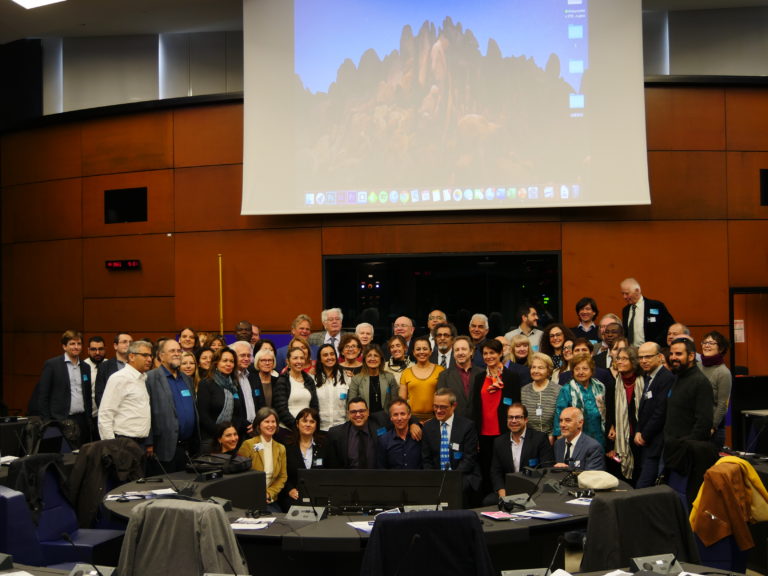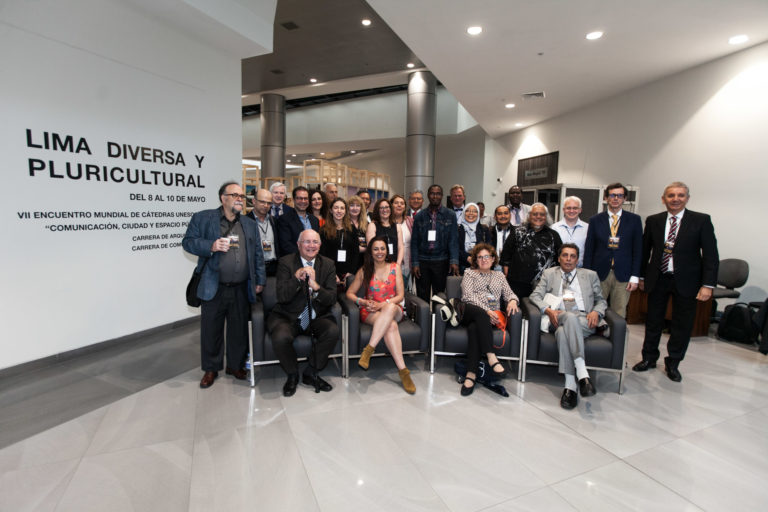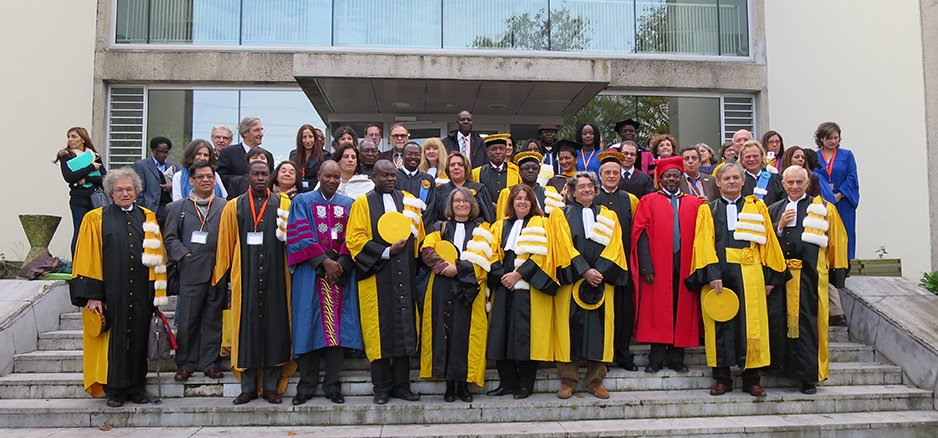Under the auspices of the UNESCO and the University of Quebec in Montreal (UQAM) , in 1994, Orbicom consolidates today as a worldwide network with 250 associate members and 30 UNESCO Chairs Communication. It currently has Chairs in Germany, Australia, Brazil, Bulgaria, Chili, China, Colombia, South Korea, Denmark, United Arab Emirates, Spain, U.S, France, Georgia, Guatemala, Kazakhstan, Lithuania, Morocco, Mexico, Peru, Dominican Republic, Russia, South Africa and Uruguay. In each of the Chairs participate leaders and professors of communication processes, both private and public sector involved.
The international collaboration of academics, leaders of the business world, public policy consultants and specialists in media, makes Orbicom a Single network in its genre, for its multidisciplinary nature in the promotion of the communications development.
Congress in which the Chair participates
tenth annual meeting
Digitizing intercultural communication
Soon more information about the annual meeting of the members of the International Network of UNESCO Chairs in Communication (ORBICOM).
- Day: 8 to 10 June 2022
- Place: Malaysia
Ninth Annual Meeting
Health crisis and communication crisis in the Covid-19 era
In the midst of the pandemic that we are experiencing, we believe that it was necessary to reflect on the communication processes generated around the health crisis, the phenomena of misinformation and false news that we experience every day, difficulties in the dynamics of consensus in public opinion and institutional and ethical challenges to manage information today.
- Day: 3 to 5 November 2021
- Place: Madrid, Spain (done online)
- Access the Congress page and its videos
Reunion organized by our Chair.
Eighth annual meeting
Freedom of Expression in the Digital Era: from the Fake News to Artificial Intelligence
This congress proposed, first of all, question the concept of freedom of expression in itself: does it cover the same reality in all countries of the world? What to do, in the democracies, where limitations are brought by the law,, rules, or legal decisions?
The possibility for each individual with Internet access to spread information, the relatively legal vacuum created by the international dimension of the web, the economic problem of a hitherto unknown level of proportions and, and by last, the professionalization of the digital practices of the states and the different social groups, all modify at the same time the stakes and the implementation of freedom of speech..
All these issues were explored during the annual meeting of the members of the International Network of UNESCO Chairs in Communication (ORBICOM).
- Day: 13 to 15 May 2019
- Place: Strasbourg, France
- Go to the video-summary of Congress
Reunion organized by the UNESCO Chair in Journalism and Media Practices University of Strasbourg.
Seventh annual meeting
Communication, City and Public Space
Cities are becoming increasingly important in the human life configuration not only from the point of view of space, the economy and consumption that occur there, but also as a communication structure, as a system in which interrelationships are woven between all those who inhabit it and who configure the identity and way of being of each particular city.
Analyzing and discussing this entire network of urban growth and its impact on communication and human development is what the International Congress "Communication, city and public space ". It has also been an opportunity to exchange diverse experiences about our cities and to offer a panorama of Lima, venue of this event.
All these issues were explored during the annual meeting of the members of the International Network of UNESCO Chairs in Communication (ORBICOM).
- Day: 8 to 10 May 2018
- Place: Lima, Peru
- Go to the video-summary of Congress
Reunion organized by the UNESCO Chair in Communication and Culture of Peace, University of Lima.
Third annual meeting
Social media
The social media can bring the ruled closer to the rulers, highlighting the good moves of a company, as well as the less good ones. The social media can inspire enthusiasm like, conversely, the return of old prejudices. They can lead to solidarity's gestures or exclusion.
What transformations do social networks really generate? What are the impacts on individuals, political systems, relations, organizations, etc.? All of these themes were explored during the annual meeting of the members of the International Network of UNESCO Chairs in Communication (ORBICOM).
- Day: 6 to 7 November 2014
- Place: Bordeaux, France
- Access to the publication
Reunion organized by the UNESCO Chair in emerging technologies and practices in communication for development, University of Bordeaux-Montaigne.






